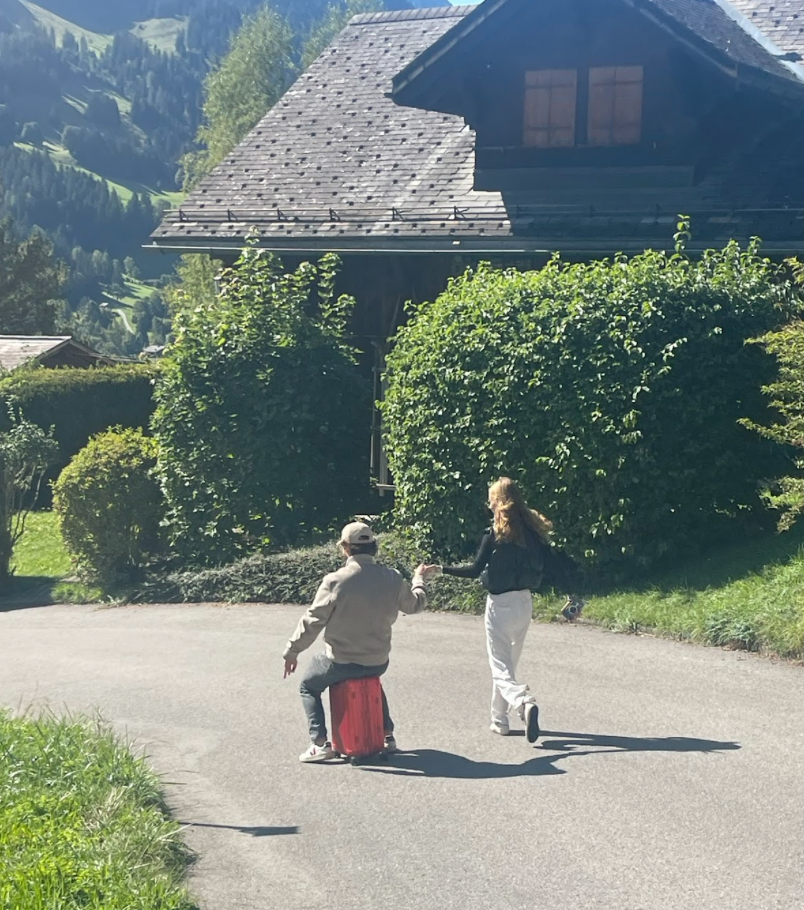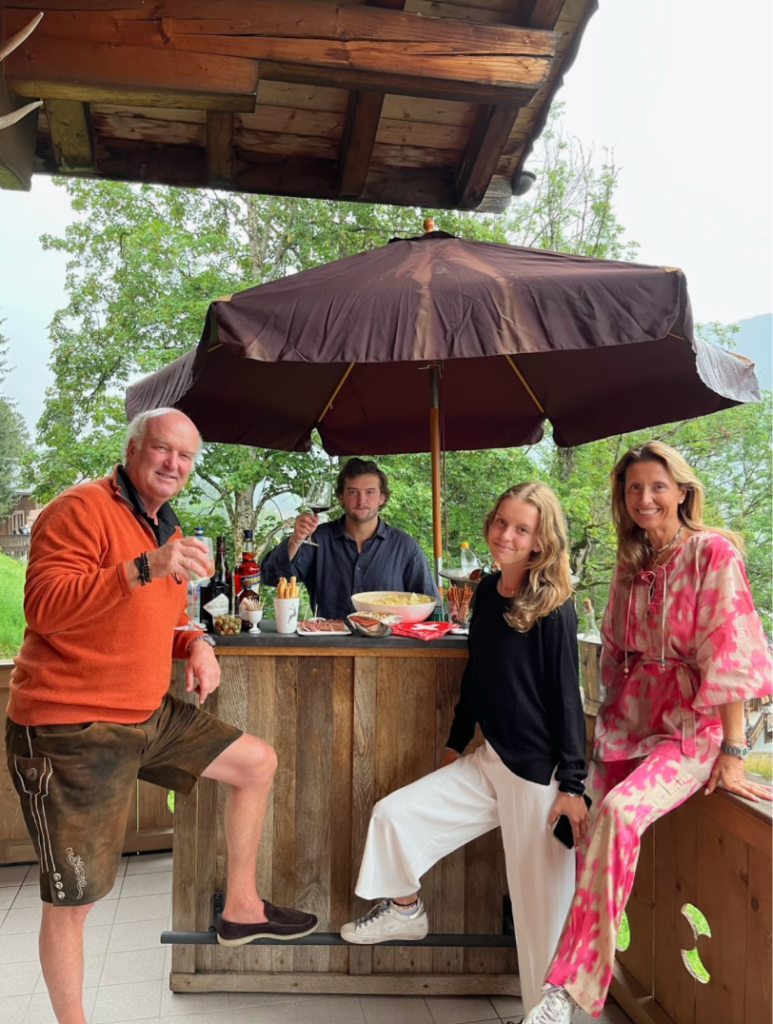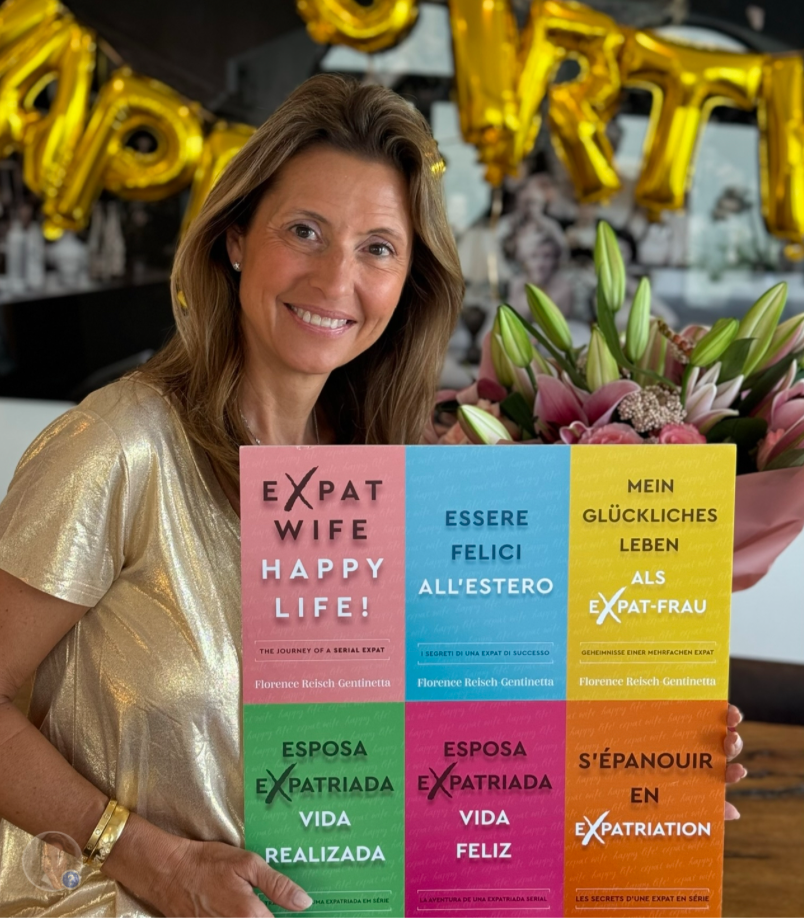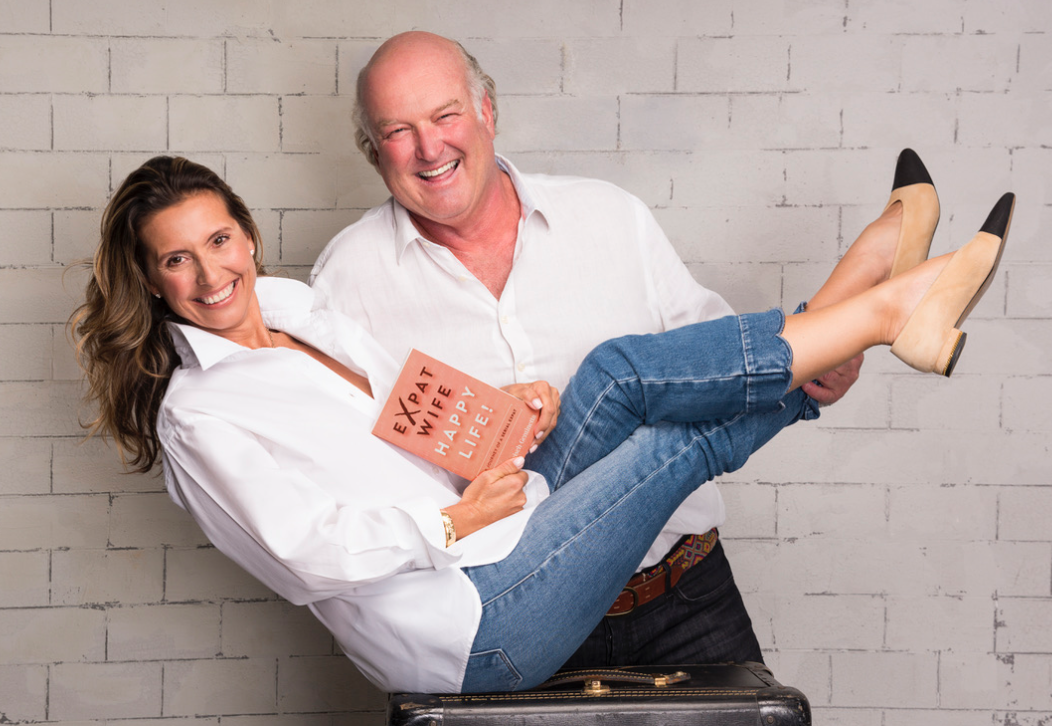Continued from Part 2 of Florence’s story.
For anyone who has spent decades as an expat trailing spouse, seeing your children leave the nest and your husband become a stay-at-home retiree is a major change of life, dynamics and pace.
We had often talked about this phase of our lives, although it has come earlier than for most of our peers. My husband, Alex, now in his mid-50s, has been building up our finances for many years so that he could spend more time with our children and aging parents, and fulfill his dreams — including a plan to sail around the world! (The catamaran is being built in Poland and, if all goes well, we’ll be starting this new adventure in May. )
During his first few months of retirement, I observed that my husband seemed to be experiencing a bit of what we trailing spouses go through at the start of our expatriation — the adjustment to everyday life, the lack of social contact — except that the timing was his choice. As for me, however, I’m just beginning to reap the benefits of the projects I’ve been developing in the shadow of his career.
It’s an emotional state: the empty nest, the return of my husband after eight years of geographical separation, and entering this new phase of life. But if you read my book “Expat Wife, Happy Life!” you’ll get a sense of my zenitude, turning every opportunity into a positive life experience.
Embracing new paths, together
It’s a bit of a paradox to be thriving professionally now that my husband has handed in his apron, but I think that, based on our life paths, we’ll each be able to continue to fulfill ourselves on our own as well as in our joint projects.
Our years together and apart have brought us closer, through difficult times and happy ones. We learned to communicate, encourage, and support each other as a couple and as a family, to listen to each other and to respect each other. Today, even though we’re once again intellectually different, going through various professional phases, we’re emotionally aligned and at peace. I think we have enough distance and expertise to support and accompany each other, to understand and respect each other’s desires. We’re a couple, but we’re also two individuals.
We haven’t even felt the need to return “home” to Austria or Switzerland yet. For our children, Dubai feels like home and we are all very happy here. Family has always been our priority, and we’re constantly working on projects that will benefit the whole family, near and far.
Our years together have been guided by values we hold dear: family, respect, trust and growth. That’s what I believe in and what I think about every morning when I get up.

Finding our new rhythms
At boarding school, our daughter (Angelina, born in Brazil in 2007) has found her friends and got used to the rigorous rhythm of studies, sports and activities. At university, our son (Constantin, born in Singapore in 2004) has found a roommate, feels less isolated, and organizes his studies to focus on what interests him for the future. At home, my husband no longer wakes up totally disoriented, wondering what he’s going to do with his free day.
As for me, now that everyone’s feeling fine, I’m focusing on my needs. Yes, the role of the mother and pillar of the family never changes, but the greatest gift my expatriate life has given me has been the discovery of myself. I’d never have achieved so much — including writing a book! — if I’d carried on with my commute-job-sleep life. Being away from my family and friends often gave me the courage to undertake activities that I wouldn’t have dared to do for fear of being judged by others.
On expatriation, I often followed my intuition and took my courage in both hands. Professionally, I never had the chance to get a work visa in any of the countries where we have lived. I’d also like to take a moment to raise awareness of this major change in the lives of expat partners: today, and I don’t know if this is the case everywhere, but in any case in Dubai, I’m discovering that it’s perfectly possible to obtain a business permit or set up your own business, to become a legal entrepreneur. This is a new era for trailing spouses who want to continue working on develop new businesses abroad.
But in own experience, my life had always been focused on my family; I always felt responsible for organizing a happy and rewarding life for us in our new environments. Looking back, I think I’ve managed to do that wherever we’ve lived, but with ups and downs and for different reasons. Overall, we have truly accumulated extraordinary experiences and journeys, and made lifelong friends.
Yet I also believe that expatriation can lead to personal fulfillment and a deeper sense of identity. It’s an opportunity to commit to your personal development and improve your skills.

During the COVID-19 pandemic, although my family got to spend most of it under the same roof, I missed meeting other people. I thought a lot about all those wonderful years we’d spent around the world, and the people I’d met. I suddenly had a moment of panic, wondering who I will be when my children leave home, my husband retires, and I’m no longer an expat — three events that I knew would probably happen at the same time. I needed a new project.
That’s when I wrote my book “Expat Wife, Happy Life!” I needed to reconnect and share my wonderful years on expatriation with other women in similar situations. An extraordinary life — but far from an easy one. As a certified expat coach (International Coach Academy, ACC International Certified Coach), I had identified the recurring themes of my clients. I needed and wanted to provide support and inspiration to expat wives who may be facing challenges and uncertainties during their journey.
My book is based on experiences and anecdotes from all over the world, first as a couple and then as a family. I address all the themes of expatriation: my challenges and successes, my ups and downs. I share recommendations for living a happy life without judgements. I respect that we are all different. I talk about the importance of attitude and state of mind, which in my opinion are one of the keys to a successful mission. I’m also talking about the family, the TCKs (Third Culture Kids), and the often complicated decisions to be made. I wanted this book to be a tool for personal reflection, so at the end of each chapter I invite my readers to answer three coaching questions related to the theme shared in the previous pages.
“Expat Wife, Happy Life!” is a valuable resource for those navigating the complexities of expat life, offering real-life stories, practical advice and coaching questions to help individuals reflect on and make the most of their own experiences. The success of my book in English has encouraged me to translate it into five languages — French, Italian, German, Portuguese, and Spanish — in order to reach a wider audience and share my message of positivity and personal fullfillment.

Lessons learned
Today, with hindsight, I would recommend that all future expats ask themselves the right questions before leaving. Identify your needs for yourself and your family and make an exploratory trip to make sure that the place and conditions meet your family’s expectations.
The first lesson I’ve learned is that you have to pause regularly and take the time to appreciate and reflect on what you’ve achieved for yourself and your family. Life goes by quickly and, as mothers are not officially remunerated, we rarely engage in a “performance review.” By becoming aware of our actions, we also gain self-confidence. Self-confidence is a powerful tool that can help us deal with life’s uncertainties and make the most of opportunities. Believing in our abilities and opening ourselves up to new experiences can lead to personal fullfilment and success.
The second lesson would be to appreciate the privilege of choice: having the freedom to make choices in life, to map out our path, to embrace new opportunities and challenges. This reminds us that we have the ability to decide the direction of our lives.
The third lesson is the importance of mindset: a positive mindset can be a transformative force in overcoming difficulties and adapting to new circumstances. It reminds us that the way we perceive and approach situations can make a significant difference to our experience.
Some readers have critiqued my book “Expat Wife, Happy Life!” as too positive and therefore unrealistic. This is a perfectly legitimate observation. Everyone has different needs and preferences. Some prefer a more realistic or cautious approach, but for others, my positivity is a ray of hope and source of encouragement and motivation.
Being an expat takes courage and a real dose of character. Nothing is ever linear, and we’re never immune to change. However, I remain convinced that a positive attitude and mindset remain one of the keys to success in expatriation.

